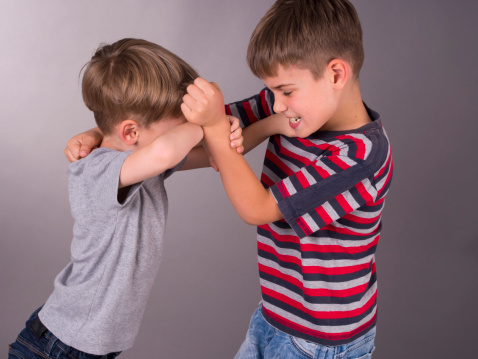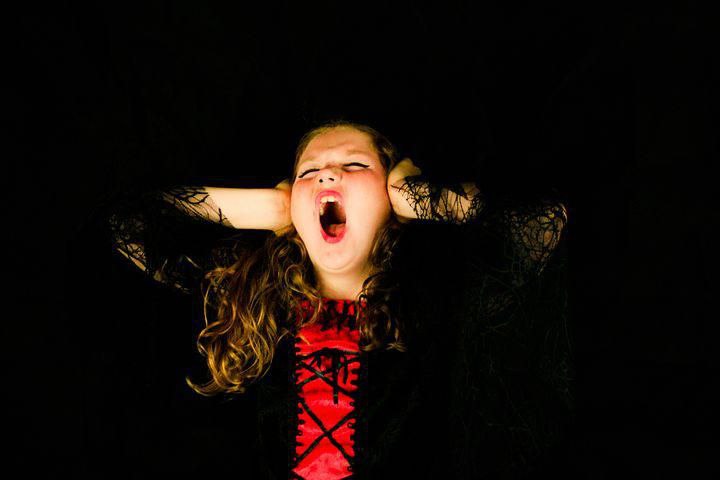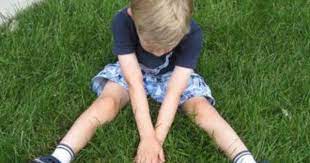What constitutes abnormal behavior in a gifted child? A child’s growth and development may be endangered by any actions that are demonstrated outside of a culturally acceptable behavioral pattern. Every society, race, tribe, and culture has a unique method of doing things. Although abnormal behavior is frequently easy to spot, it can be challenging to define.
Actions that deviate from what is seen as normal in a given society or culture are referred to as “abnormal conduct” in psychology. This description of abnormal behavior serves many purposes and is practical. The majority ofWhich personality disorder is the most common in gifted children? definitions of abnormal behavior,
However, also take into consideration the psychological fact that psychological factors including anxiety, mental illness, pain, and stress frequently play a significant influence on behavioral patterns.

What is abnormal behavior?
What is abnormal behavior? an attitude that is typically unacceptable in a family, community, nation, ethnicity, or race. behavior that is harmful to a person or people around them or that is statistically uncommon within a certain culture. Such behavior is often viewed as proof of mental or emotional illness.
What are the types of abnormal behavior in gifted children?
1. Disrespect and backtalk
You might find it amusing and cute when your three-year-old speaks back to you. But it might irritate you if your seven-year-old says “no” each time you ask them to do anything. Backtalk may trigger disputes between parents and children if it is not addressed appropriately.
2. Abusive words
A Child can yell and scream when he is angry. Some children use yelling to scare aware their parents from interfering in their affairs. They may start yelling or using abusive language to bring you into an argument or simply to get your way.
3. Violent or aggressive conduct
It’s acceptable for kids to feel furious. But it becomes a concern when children’s anger escalates to violence or displays aggressive conduct. Young children may become aggressive due to mood problems, psychosis, conduct disorder, trauma, impulsivity, or impatience. Your youngster may occasionally use violence as a kind of self-defense. Additionally, aggressive conduct may be taught. What’s the atmosphere like at home?
4. Lying
Children frequently tell lies. Parents frequently worry when they discover their kids lying. You can feel hurt, deceived, and unsure about whether you can trust the kid ever again.
5. Bullying
Bullying is a severe issue that can lead to the victim being physically and emotionally abused. In order to feel superior, some kids often bully other kids. Additionally, bullying readily fixes their social issues. When managing their emotions gets challenging, kids often turn to bully to make things better.
6. Manipulation
Manipulation is a challenging and draining trait to control. In order to achieve what they want, kids frequently lie, act out, or cry. Your youngster will feel justified in misbehavior if you give in to it. For instance, if you buy your child a candy bar after they have a public tantrum, they have successfully tricked you. your children have power over you if they can influence you.
7. Lack of motivation and laziness
Your youngster doesn’t appear to be motivated to accomplish anything at all. A lack of motivation makes a child lose focus and interest. They won’t do anything, including playing or practicing their art, music, or any other skill. It may be challenging to get youngsters to be motivated, especially if they are lethargic and often look for an excuse not to do something.
8. Behavioral problems at school
Children sometimes frustrate parents by refusing to go to school or do their schoolwork on time. Some of them might go on to declare things like ” I hate school” There are reasons a child may refuse to go to school. for example fear of being bullied, over-pampering, low self-esteem, and others

What Are the Types of Behavioral Disorders?
There are different types of behavioral disorders, as itemized below:
Anxiety conditions
disordered conduct that is disruptive
Disorders of dissociation
widespread developmental issues
Dealing with behavioral issues is not always straightforward. Therefore, you would need to ask a specialist for assistance in such circumstances.
Behavioral disorders can be classified into a few types, which include:
What are the Causes of abnormal behavior in a gifted child
Biological makeup:
Physical illness or disability, Malnutrition, and Brain damage are biological factors that can cause abnormal behavior in a child. A child who suffers disability can never behave like a normal child. A child who was born normal but become epileptic due to health challenges could sustain brain damage as a result of epilepsy.
Hereditary factors:
Some abnormal behavior could be traced to family lineages and backgrounds. When a family is known for exhibiting a particularly bad habit, the habit has become hereditary. For example, there are families that are fighters, they like bullying people.
Poor parental upbringing
The way a child was brought up goes a long way to affect his behavioral tendencies. Parents who don’t have control over their children are bound to produce children with questionable characters. Parents should start early enough to train, guide, control, and discipline a child before they lose parental control over them.
bad friends
Evil communication corrupts good manners. The friends your children keep have a positive or negative effect on their attitude. Parents should find out the kind of friends their children keep from on the set. Early prevention is better than cure
Technological advancement
Technological advancement has contributed so much to the abnormal behavior of today. Social media platforms are the major contributory factors to abnormal behavior in children today. Parents should monitor what children do with their phones and devices.
Depression
When a child is depressed, it can affect his behavior. Their lots of factors that cause depression in children, for example, physical health, bullying, family history, an unconducive environment, low self-esteem, and life events.

What are the symptoms of abnormal behavior in a gifted child?
Argumentative behavior and tantrums
Easily irritated
Anxiety
Frequently getting angry
assigning fault to others
refusing to adhere to the law or challenging authority
having trouble controlling your rage
regular outbursts and temper tantrums
Moods of sorrow
separation from society and seclusion
intense anxiety or worry that interferes with day-to-day activities
destroying or damaging property
Stealing or lying
failing academically and skipping courses
Early usage of tobacco, alcohol, drugs, or sexual activities
hostile attitude against authorities that persists
disregarding one’s appearance and personal hygiene

What are the solutions to abnormal behavior?
Disrespect and backtalk
If your child talks back but follows your instructions, you may choose to ignore it. but if it continued, you have to explain to him that it is human to be angry but not to talk to you disrespectfully. Tell them calmly about what behavior is acceptable and what is not
Abusive Words
When your child uses abusive or offensive words and yells at you, First ensure you are not the one they picked the attitude from. Make sure you are not using such language in their presence. Have zero tolerance for verbal abuse at home. There should be no reason for swearing or cursing. So if they use such language, there is a consequence. Explain the consequences clearly and ensure they are in place.
Lying
This is what you should do to prevent your child from lying. Find out what prompted his lying in the first place. Children may lie when they are scared about the truth, and this behavior always attracts negative consequences. Teach them to be honest. Start by being a role model. Have punishments for lying rather than arguing or discussing it. if a child lies, he or she gets to deal with the consequences
Aggressive or violent behavior
If your child tends to react to a negative response by hitting, biting, or kicking, this is what you should do. The easiest way to handle aggression in children is to shout at them. But if you do so, you may end up tutoring them the wrong way to respond to issues. Children are looking up to parents to learn how to control their impulses and emotions. So rather than raising a voice, lower the tone and encourage them to calm down.
Manipulation
A child with abnormal behavior must react every time you say ‘no. Parents should figure out how to tackle their behavior and not fall for manipulation. Make it clear what it means no when you say ‘no.’ You can give them a brief explanation of your position, but don’t get into justifying it. Avoid discussion, but don’t shut them off completely. Try to listen to their side of the argument as long as the child remained controlled and not rude or abusive
Bullying
If you find that your child has been bullying others, you should act immediately. Start teaching your children from an early age that bullying is wrong. But, more importantly, explain to them what or who a bully is and give them examples of what bullies do. Set rules and standards in the house early on. Make a statement like “we do not bully in this house and you do not get away with such behavior in this house.”
Lack of motivation and laziness
Avoid getting anxious about a child’s interest because when you do, you may be seen as a difficult mom. Do not force your child to take up a hobby. Instead, give them a free hand to make their choices. They are more likely to develop a passion for something that they choose themselves. Find ways to ensure motivation and less laziness in them.
Behavior problems in school
Find out why the child dislikes school or refuses to do their assignments. Try to assist them with their assignments if they encounter challenges. Talk to their teacher about the academic challenges they are facing. Let the children feel and understand that you are available for them.

What are the Criteria for identifying abnormal behavior
Violation of Social Norms.
The violation of social norms is mostly seen in mentally challenged children or adults. A stranger who does not know the culture of the country he migrated into or understands their language could be behaving abnormally.
Statistical Rarity.
This is where a child begins to display behaviors that are uncommon in their family and environment. This type of behavior is very rare. For instance, children who have extremely high IQs may also have statistical rarities.
Personal Distress.
Personal distress is when a child began to behave very unusually as a result of pressure from the child’s surroundings. The feeling of anxiety and depression can cause abnormal behavior in a child. Culture, religion, gender, race, and ethnicity are factors that may contribute to abnormal behavior in a child.
Maladaptive behaviors.
Challenging life situations can result in maladaptive types of abnormal behavior in a child. this kind f abnormal behavior can be harmful to a child’s personal growth and development.
Read more of our articles here: https://abundanceandkiddies.com/

Pingback: Can Giftedness Be Inherited In A Family: The Expert Analysis - PARENTING
Pingback: Idea Generation in a gifted child: The top secrets - PARENTING
Pingback: The Best Way To Parent A Difficult Child - PARENTING